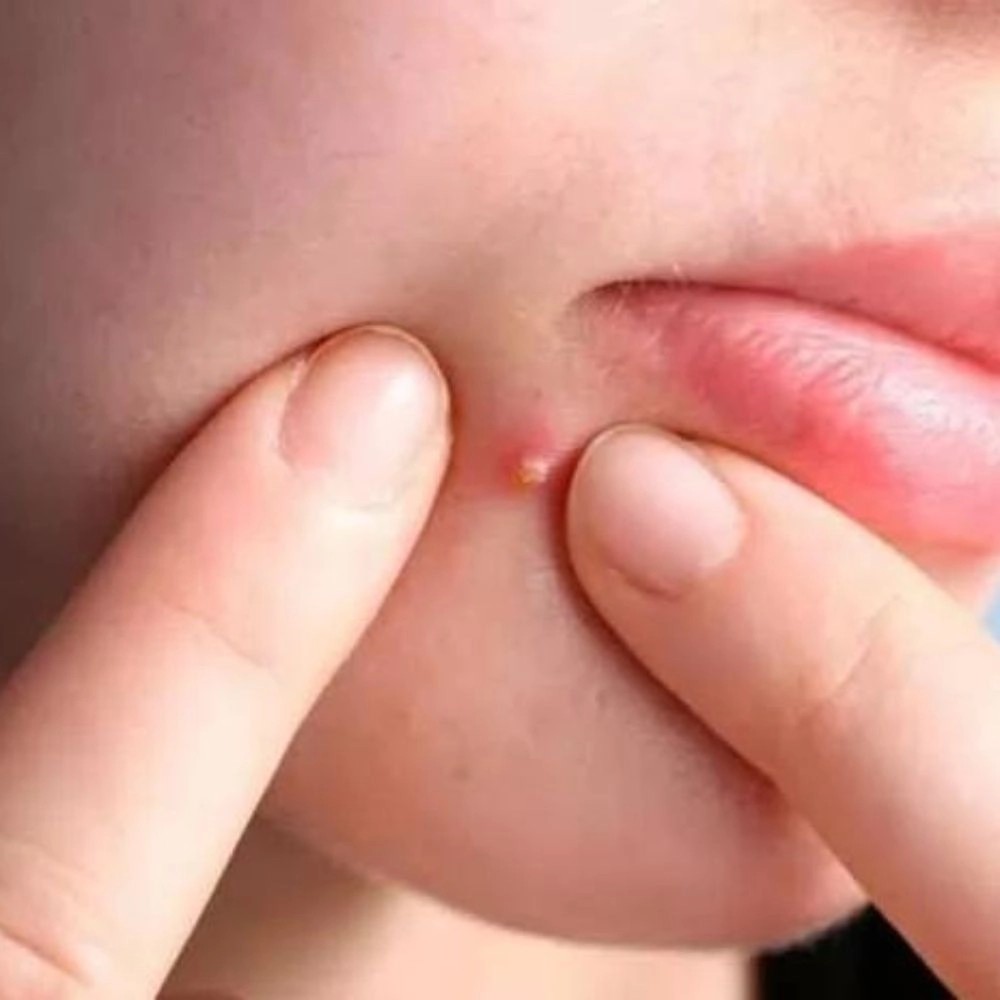Table of content
- Types of BREAST RECONSTRUCTION
- Procedure
- Risks and complications
- Pre-operation preparation
- Post-operative care
- Expected Results and recovery timeline
- Appointments and consultation
- Frequently asked questions
- Meet the team
- Pricing and payment plans
- Medical literature and research
- Support and counseling
- Send a message
BOILS & CARBUNCLES
INDICATION – BRIEF
Boils and carbuncles are painful, pus-filled bumps caused by bacterial infections, usually from Staphylococcus aureus, in hair follicles or oil glands. They can occur due to clinical factors such as existing skin conditions (acne, eczema) and compromised immune systems (due to diseases like HIV/AIDS or diabetes). Non-clinical factors include poor hygiene, inadequate nutrition, smoking, direct contact with infected individuals, and residing in densely populated environments. Treatment typically involves draining, cleaning, and possibly antibiotics. Avoid self-treatment to prevent further infection or scarring.

INDICATION – DEFINITION
Boils and Carbuncles
Boils, also known as furuncles, are painful, red bumps that can grow larger over time and develop a pus-filled head. They are caused by bacterial infections in the hair follicles or oil glands. When these boils cluster together, they form a more severe condition known as carbuncles.
Clinical Factors
- Bacterial Infection: The main clinical cause of boils and carbuncles is a bacterium called Staphylococcus aureus. This bacterium is often present harmlessly on our skin but can cause infection when it enters the body through a cut or scratch.
- Immune System Factors: Individuals with compromised immune systems, such as those with HIV/AIDS, diabetes, or other chronic conditions, are more susceptible to developing boils or carbuncles.
- Skin Conditions: Certain skin conditions like acne or eczema, which can damage the skin’s surface, can increase the risk of developing boils.
Non-Clinical Factors
- Poor Hygiene: Not washing regularly or properly can make it easier for bacteria to accumulate on the skin and in hair follicles, leading to boils.
- Nutrition and Lifestyle: Poor nutrition can weaken the immune system and increase the risk of infection. Similarly, habits like smoking can impair the body’s ability to fight off infection.
- Contact and Contamination: Direct skin-to-skin contact with a person who carries the Staphylococcus bacteria, or using personal items (like towels or razors) that have been in contact with an infected person can spread the bacteria.
- Environmental Factors: Environments where people live or work closely together, such as in a family household, school dormitory, military barracks, or care facility, can make it easier for the bacteria to spread.
Treatment for boils and carbuncles generally involves draining and cleaning the affected area, and in some cases, prescribing antibiotics to combat the bacterial infection. It’s important to avoid squeezing or popping boils or carbuncles yourself, as this can lead to further infection or scarring. If you’re dealing with these conditions, it’s recommended to seek professional medical advice.
SYMPTOMS AND DIAGNOSIS
Symptoms of Boils and Carbuncles
Boils typically start as red, tender bumps, which over a few days become firm, larger, and increasingly painful. Eventually, they form a yellowish head that may spontaneously burst and discharge pus.
Carbuncles, which are clusters of boils, present as deeper and more severe infections. They tend to develop more slowly and might cause fever, fatigue, and a general feeling of illness.
Common symptoms include:
- Red, swollen, and painful lump on the skin
- Lump that increases in size over a few days to a week
- Formation of a yellow or white tip that might leak pus or blood
- Fever and chills (more common with carbuncles)
Diagnosis of Boils and Carbuncles
Diagnosis is often based on a physical examination. A dermatologist can usually diagnose a boil or carbuncle by its appearance.
If the boils or carbuncles are recurrent or not responding to treatment, the doctor may collect a sample of the pus for laboratory testing (culture). This can help confirm the type of bacteria causing the infection and determine the most effective antibiotic for treatment.
In some instances, especially for recurrent cases, your healthcare provider might order additional tests to check for underlying conditions that could be making you more susceptible to skin infections, like diabetes or immune disorders.
Prognosis and Impact

prognosis of Boils and Carbuncles
Boils and carbuncles generally have a good prognosis when treated correctly. Most cases can be managed effectively with drainage and, when necessary, antibiotics. Boils usually need about one to three weeks to heal fully, depending on the severity and size of the boil. Carbuncles may take longer, given that they are a more severe infection.
However, it’s important to get appropriate treatment, as improper or delayed management can lead to complications, such as abscess formation, scarring, or even sepsis in extreme cases.
Impact of Boils and Carbuncles
Boils and carbuncles, although not usually life-threatening, can significantly impact an individual’s quality of life. The areas around the infection can be tender and painful, which may restrict certain activities.
The location of these skin conditions can sometimes cause embarrassment, leading to psychological stress and reduced self-esteem.
Moreover, the potential for scarring can also be a significant concern for many people, especially if boils or carbuncles form on visible areas of the body.
For individuals who experience recurrent boils or carbuncles, this can indicate an underlying health condition, such as a compromised immune system or diabetes, which will have its own set of impacts on the person’s overall health and lifestyle.
Treatment Options
- Incision and Drainage: This is the most common treatment for a large boil or carbuncle. In a sterile environment, a dermatologist or surgeon makes a small cut in the boil and drains the pus. This procedure relieves pain, speeds up recovery, and helps prevent complications.
- Antibiotics: Depending on the severity of the condition, or if the infection is spreading, you may be prescribed antibiotics. These are often necessary for treating carbuncles, but not all boils require them. Antibiotics can either be given orally or applied topically depending on the situation.
- Warm Compresses: Applying a warm washcloth or compress to the boil or carbuncle several times a day can help speed up recovery by promoting drainage. This should be done for about 15 minutes at a time.
- Over-the-Counter Treatments: Non-prescription treatments like antiseptic creams, adhesive pads, and special gauze dressings can help with smaller boils. These treatments protect the area, promote drainage, and keep the infection from spreading.
Risks and Side Effects
Risks and side effects of this procedure may include:
- Pain: The area around the boil or carbuncle may be tender or painful both during and after the procedure.
- Scarring: There is a risk of scarring, particularly if the boil or carbuncle is large.
- Infection: There’s a small chance that the infection could spread or worsen if not all the pus is drained or if the area isn’t properly cleaned and cared for post-procedure.
Antibiotics
Risks and side effects of antibiotic treatment can include:
- Allergic reactions: Some individuals may be allergic to certain antibiotics, which can cause symptoms ranging from mild rashes to a severe anaphylactic reaction.
- Gastrointestinal problems: Antibiotics can disturb the natural balance of bacteria in your gut, leading to issues like nausea, diarrhea, or even yeast infections.
- Antibiotic resistance: Overuse or misuse of antibiotics can contribute to antibiotic resistance, a significant global health concern.
Warm Compresses
There’s little risk involved with applying a warm compress to a boil or carbuncle. However, one should ensure the compress isn’t too hot to avoid burns or skin damage. If the skin is punctured accidentally, it could potentially spread the infection.
Over-the-Counter Treatments
Most over-the-counter treatments are safe to use as instructed, but side effects can occur:
- Skin irritation: Some individuals might experience redness, itchiness, or discomfort at the site of application.
- Allergic reaction: Though rare, some people may have an allergic reaction to the ingredients in these treatments, which could cause a rash, itching, or swelling.
FAQ Section
Boils and carbuncles are typically caused by a type of bacteria called Staphylococcus aureus, which infects a hair follicle or oil gland. Contributing factors can include a weakened immune system, poor hygiene, existing skin conditions, and close contact with a person who has a staph infection.
Yes, the bacteria that cause boils and carbuncles can spread through skin-to-skin contact or by sharing personal items like towels or razors. It’s essential to cover the infection with a clean bandage and wash your hands regularly to prevent spreading the bacteria.
Treatment can involve a combination of procedures like incision and drainage to remove the pus, antibiotics to kill the bacteria, and warm compresses to alleviate discomfort and promote healing. Over-the-counter treatments can also help with smaller boils.
It’s not recommended to squeeze or pop a boil or carbuncle at home as it can lead to further infection and possible scarring. Always seek professional medical advice for treatment.
You can help prevent these conditions by practicing good hygiene, not sharing personal items, treating any skin conditions promptly, and maintaining a healthy lifestyle to support your immune system.
Although generally not life-threatening, untreated or improperly treated boils and carbuncles can lead to complications such as abscess formation, scarring, or even sepsis in severe cases. If you have a boil or carbuncle, it’s essential to seek medical attention to ensure appropriate treatment.
Recurrent boils could be a sign of an underlying condition that weakens your immune system, like diabetes, or it might indicate that you’re a carrier of staph bacteria. If you frequently develop boils, it’s recommended to seek medical advice to determine and address any underlying issues.
